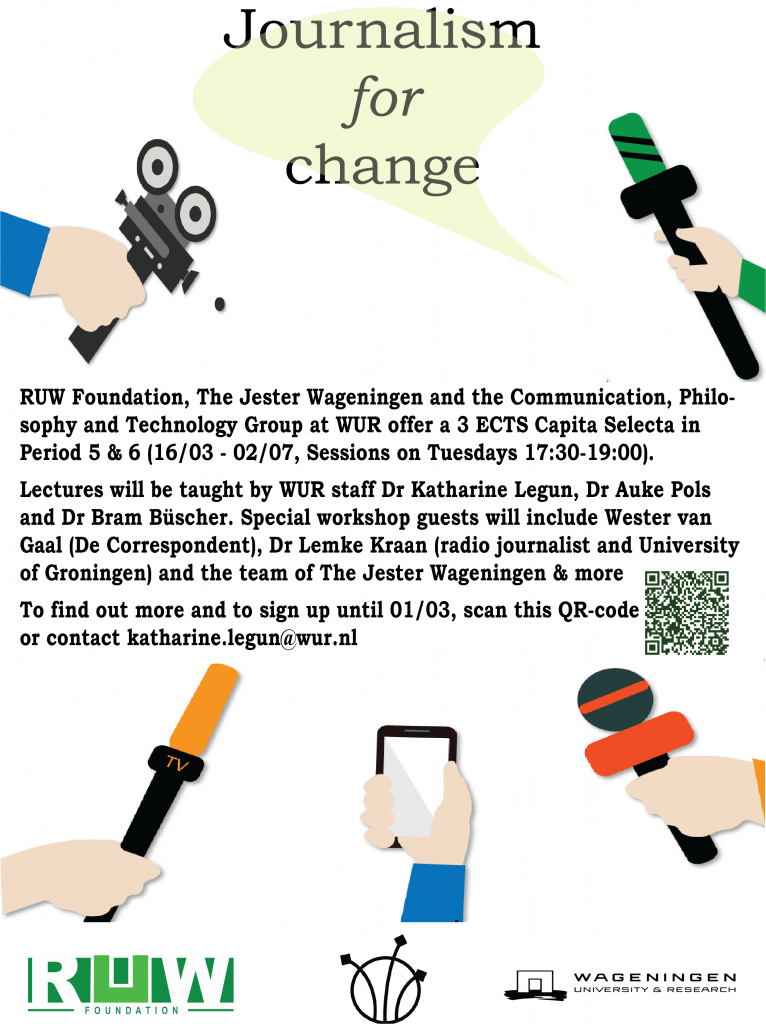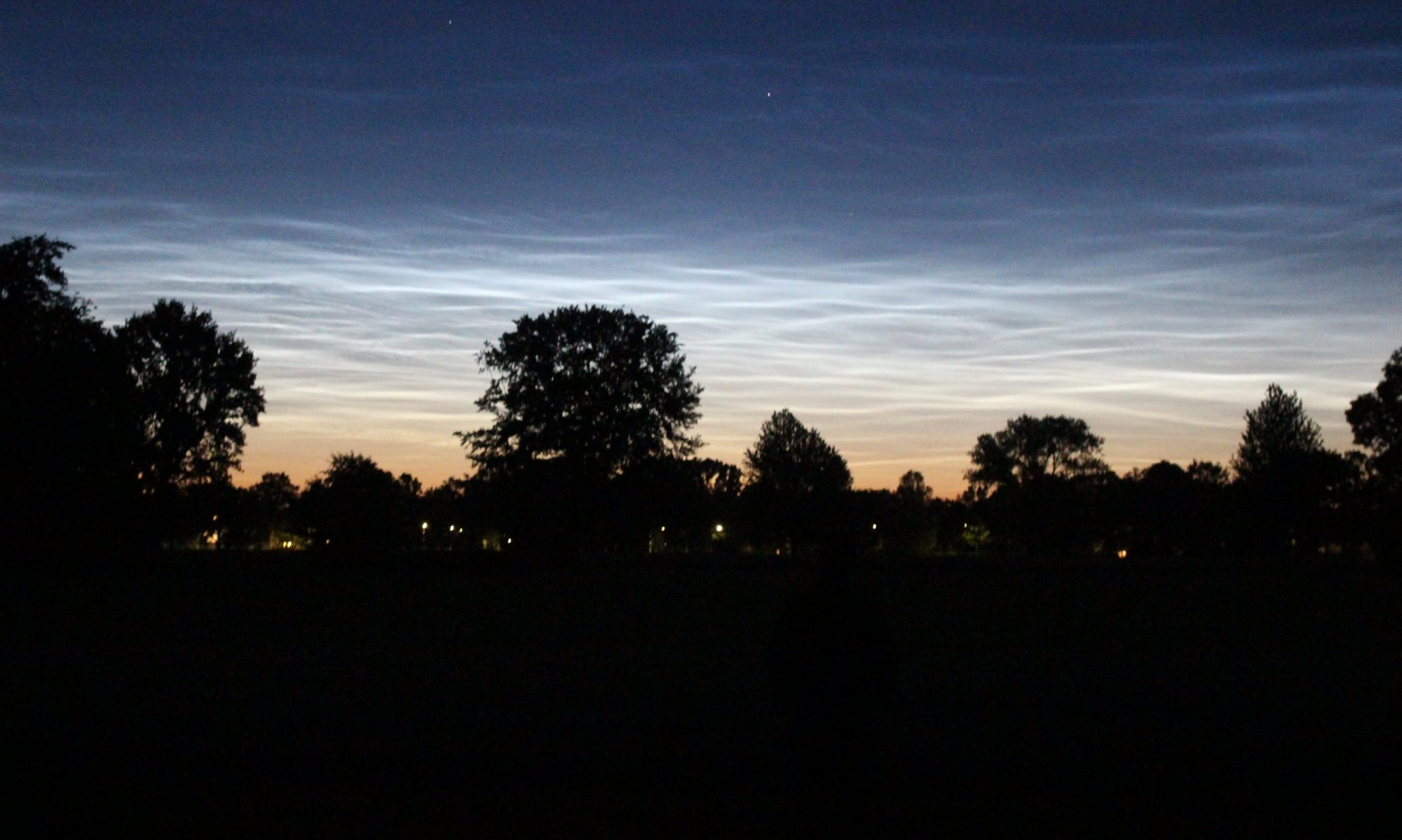
Dear Wageningen community,
we proudly present: Journalism for change, a 3 ECTS Capita Selecta course RUW Foundation, The Jester and the Communication, Philosophy and Technology (CPT) Chair Group have been working on.
The world around us is a constant work in progress. Societies have always been faced with fundamental challenges, but the scale at which contemporary problems occur is arguably much greater. Right now, our globalized world is facing several societal crises at multiple levels. Climate and ecological crises, ravaging inequality, food insecurity, wars and violent conflicts, health crises are all happening simultaneously and in ways that are often related. This course is not intended to find technical or policy-related solutions to these complex challenges, but to learn how to effectively communicate about problems to support informed and democratic decision-making.
Scientists tend to be very active in publishing (arguably complicated and lengthy) papers in journals and books that rarely make it to the bestselling lists. On the other hand, mass media and other journalistic media outlets, who arguably shape the public opinion, often avoid or oversimplify important issues. This course aims to tackle this disparity by actively stimulating students of a wide variety of disciplines to engage in communicating about societal challenges in a journalistic way. We wish to provide hands-on training for interested students with teaching and advice from experts from the field, informed by academic underpinning facilitated by lecturers from WUR.
This course will address the following questions:
- What is (investigative) science and environmental journalism?
- What should be communicated and how?
- What audiences should and can be addressed?
- How does social media and the intentional circulation of misleading information effect democracy and engagement with media?
- How do we ensure credibility (integrity and transparency) in communication?
- How is neutrality handled in journalism?
- What do we want to communicate and to whom?
- Is there a debate? If yes, how do you address differing perspectives?
- A large part of the population reads the big print newspapers (NOS, Trauw, NRC etc.) but more and more different ways/forms of communicating with audiences have emerged, such as Podcasts and Social media; including Instagram, Twitter, TikTok, and YouTube.
How has this changed the information circulation landscape?
Is there even this one thing called information anymore? Or merely opinions and perspectives?
The course will run over Period 5 and 6 and include lectures, workshops and group work. Next to that you will also produce a piece of journalistic media yourself. Lectures/workshops and group work will be alternated weeks, so that one week will have a lecture and the following week will include a group work assignment.
The tentative dates for lectures and workshops (contact hours) are 16/3, 30/3, 13/4, 27/4, 18/5, 1/6, 15/6 and 29/6 from 17:30-19:00.
Participants of this course can submit their completed individual assignments in a special edition of The Jester, if they choose so. One workshop will be offered by the editing team of The Jester for this purpose.
The course outline is still in progress, but the latest draft is available here:
Registration is not possible anymore. Thx everyone for the huge interest. Those that were admitted will receive information via mail.
For any further questions you are welcome to contact us via ruw(at)wur.nl or the course coordinator Dr Katharine Legun via katharine.legun(at)wur.nl .
